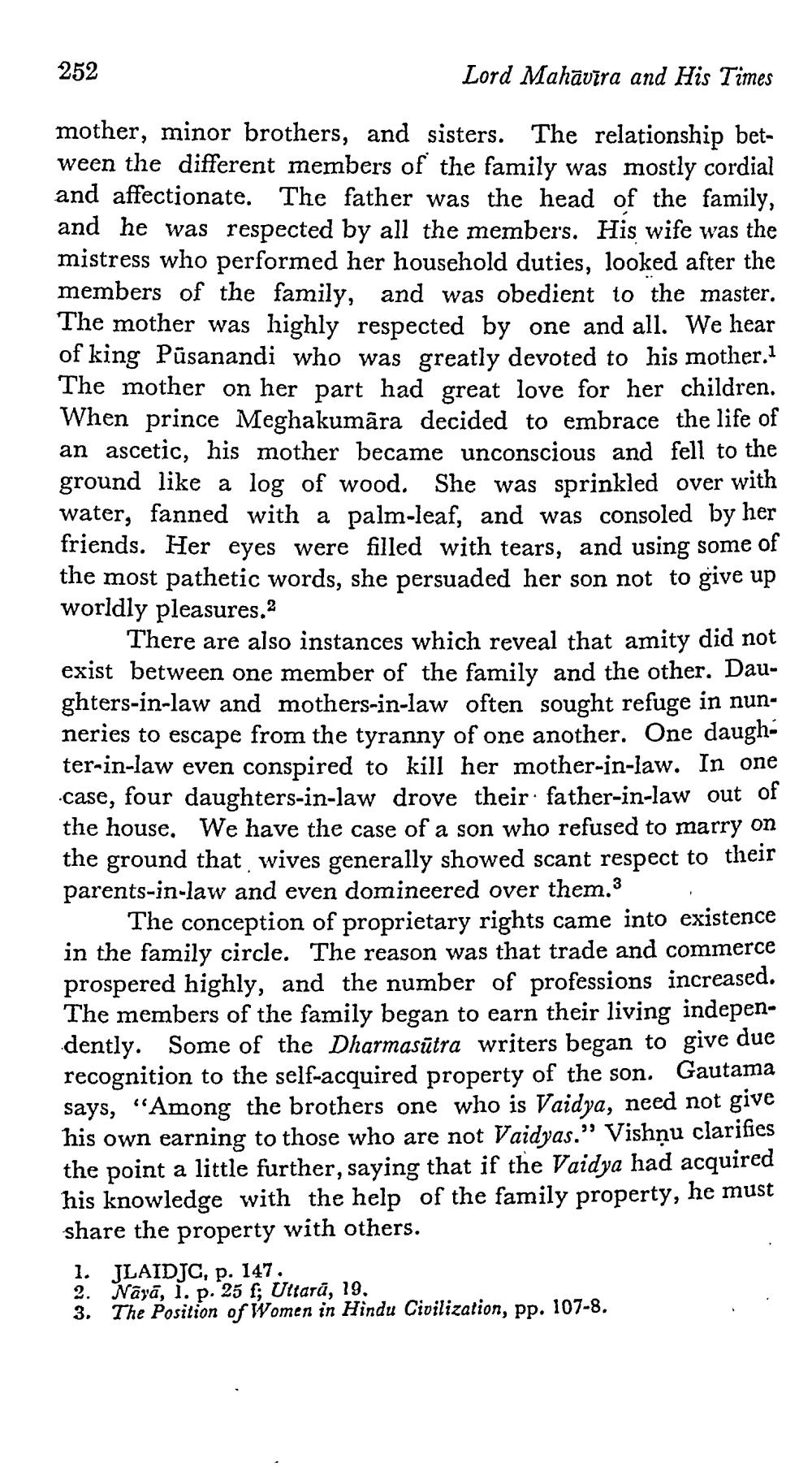________________
252
Lord Mahavīra and His Times
mother, minor brothers, and sisters. The relationship between the different members of the family was mostly cordial and affectionate. The father was the head of the family, and he was respected by all the members. His wife was the mistress who performed her household duties, looked after the members of the family, and was obedient to the master. The mother was highly respected by one and all. We hear of king Püsanandi who was greatly devoted to his mother.? The mother on her part had great love for her children. When prince Meghakumara decided to embrace the life of an ascetic, his mother became unconscious and fell to the ground like a log of wood. She was sprinkled over with water, fanned with a palm-leaf, and was consoled by her friends. Her eyes were filled with tears, and using some of the most pathetic words, she persuaded her son not to give up worldly pleasures.2
There are also instances which reveal that amity did not exist between one member of the family and the other. Daughters-in-law and mothers-in-law often sought refuge in nunneries to escape from the tyranny of one another. One daughter-in-law even conspired to kill her mother-in-law. In one case, four daughters-in-law drove their father-in-law out of the house. We have the case of a son who refused to marry on the ground that wives generally showed scant respect to their parents-in-law and even domineered over them.3 .
The conception of proprietary rights came into existence in the family circle. The reason was that trade and commerce prospered highly, and the number of professions increased. The members of the family began to earn their living independently. Some of the Dharmasūtra writers began to give due recognition to the self-acquired property of the son. Gautama says, “Among the brothers one who is Vaidya, need not give his own earning to those who are not Vaidyas." Vishņu clarifies the point a little further, saying that if the Vaidya had acquired his knowledge with the help of the family property, he must share the property with others. 1. JLAIDJC, p. 147. 2. Nayā, 1. p. 25 f; Uttarā, 19. 3. The Position of Women in Hindu Civilization, pp. 107-8.




